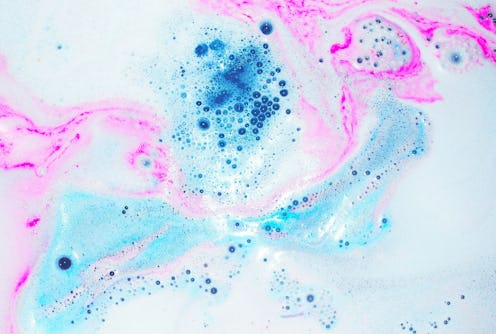
A common debate about gender roles centers on to what extent they are innate and biological and to what extent they are social and learned. Often, this debate pits science against the concept of gender as a social construct. However, there are scientific facts that challenge gender roles. Even though science is often used to support gender, it in many ways calls it into question.
While it might seem like gender roles are natural when you've grown up with them and had them instilled in you, they can do a lot of harm to a lot of people, and justifying them as the natural order of things perpetuates this harm. First of all, gender roles prevent people from being themselves. If you're, say, a woman who wants to be a scientist or a man who wants to be a stay-at-home parent, conventions regarding gender can make this more difficult for you. Secondly, gender roles are often based on misogynistic ideas. For example, the idea that women shouldn't have their own careers is based on a view of women as less complete humans than men. For these reasons, we need to be really careful about what we ascribe to biology. When we ascribe something to innate tendencies, we prevent ourselves from seeing other possibilities.
Here are some scientific facts that will make you question everything you thought you knew about gender:
1. There Aren't "Male" Or "Female" Brains
A recent study from Tel Aviv University found that only between 0 percent and 8 percent of people have stereotypically masculine or feminine brains. The great majority have ones that can't be classified either way, and there isn't any physical difference between men's and women's brains in general except that men's brains are larger, but that's just because their whole bodies tend to be larger. Brain size doesn't correlate with intelligence, or else the blue whale would be the smartest animal alive.
2. Stereotypes Create Gender Differences
There's a well-known phenomenon among psychologists called "stereotype threat," which means mere awareness of a stereotype influences someone's behavior. If you're a woman or African-American taking a math test, for example, and you're reminded of what group you belong to, you'll actually perform worse because you know your group is stereotyped to be worse at math than white men. So, if evoking a stereotype can exacerbate a gender difference, can taking it away diminish it? Yup! One study from the University of Berlin found that telling people to picture themselves as stereotypical men completely eliminated gender differences in a mental rotation task, which is said to measure spatial skills (falsely) stereotyped as masculine.
3. Animals Don't Follow Human Gender Roles
If you look at the animal kingdom, some species do things the way humans in modern Western culture do, some don't, and some do things a variety of ways. Lionesses are more active hunters than lions, birds of the same sex raise children together, and many female primates are at least as sexually aggressive as the males. Conflating humans with animals is problematic in the first place, since it often stems from the conflation of sex and gender and the assumption that every species' brain works the same way, but what's clear is that the argument that human gender roles are natural because animal ones are is a weak one.
4. Sex And Gender Are Not Binary
As I mentioned, most people don't have stereotypically "male" or "female" brains. And as it turns out, we don't all have "male" or "female" bodies either. About 4 percent of people are born intersexual — though they often undergo surgery as infants (sometimes without their parents' consent) due to the misconception that there's something wrong with them — according to a paper by biologist Anne Fausto-Sterling. "Sex is a vast, infinitely malleable continuum," she writes, and it can't be confined to categories. Neither can gender, and it's time we see it that way.